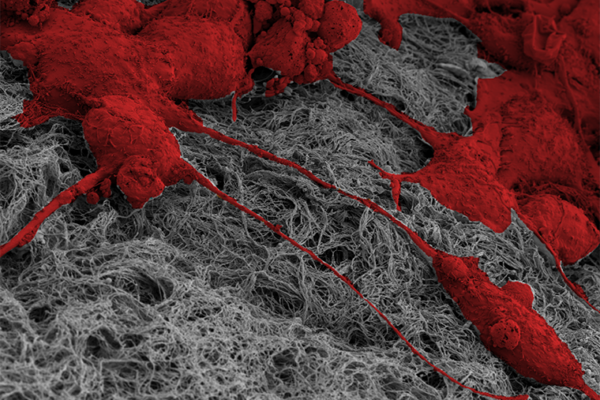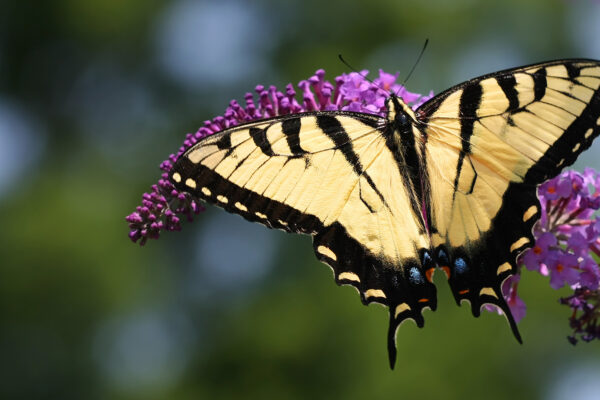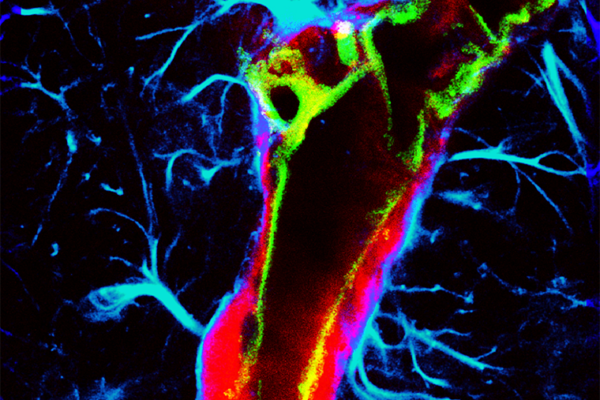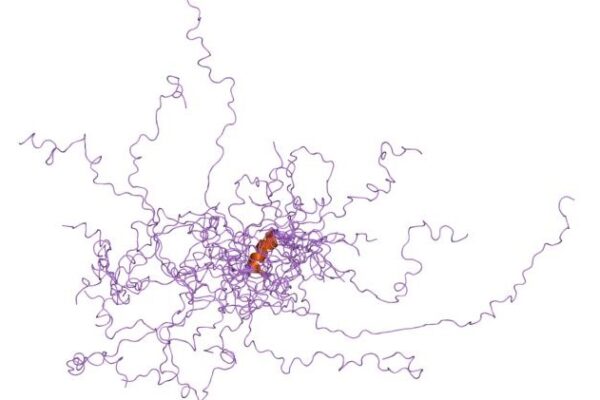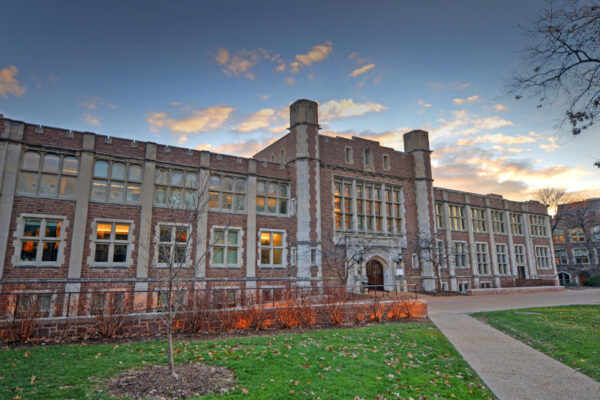Engineers to unlock new possibilities for autonomous systems
Yiannis Kantaros, an assistant professor at the McKelvey School of Engineering, received a $413,694 grant to advance the safety, efficiency and transferability of artificial intelligence-enabled autonomous robots.
Environmental memory propels collective cell migration
Researchers in Amit Pathak’s lab at the McKelvey School of Engineering found that cells learn from past environments to promote future invasions.
Data from wearables could be a boon to mental health diagnosis
A team of researchers from the McKelvey School of Engineering and the School of Medicine are using Fitbit data and deep learning to detect depression and anxiety.
Butterfly beginnings
Biologists including Michael Landis in Arts & Sciences worked with researchers from dozens of countries to reconstruct the origin and global spread of butterflies. The resulting butterfly tree of life reveals that they got their start in North America.
How to avoid mosquito bites
Katie Westby, a vector and disease ecologist at Tyson Research Center, applies a strong DEET repellant and wears treated clothing when she’s headed deep into the woods, but uses a lighter touch at home. She warns that pet dogs and cats can also be affected by mosquito bites.
Insight into brain’s waste clearing system may shed light on brain diseases
Researchers at the McKelvey School of Engineering discovered how to use focused ultrasound with microbubbles to examine the glymphatic system. Impairments in this system may contribute to brain diseases, such as neurodegenerative diseases and stroke.
Motivations for taking the moral high ground
Jessie Sun, an assistant professor of psychological and brain sciences in Arts & Sciences, examines what drives good deeds.
Pappu to explore ways in which charge contributes to diverse states of proteins
Rohit Pappu at the McKelvey School of Engineering received a National Science Foundation grant to study the impact of charge regulation on intrinsically disordered proteins.
Biology students win annual awards
Six exceptional undergraduates were recognized with Department of Biology awards, including a new prize named in honor of Garland Allen, who advocated for racial and gender equality in the biological sciences.
Study shows similarity between solid state and liquid state electrolytes used in batteries
Research led by Peng Bai at the McKelvey School of Engineering is the first to show that a solid-state electrolyte has a high level of similarity to liquid electrolytes, which is good news for designing safer and more efficient solid-state batteries based on reliable mechanistic knowledge.
View More Stories

